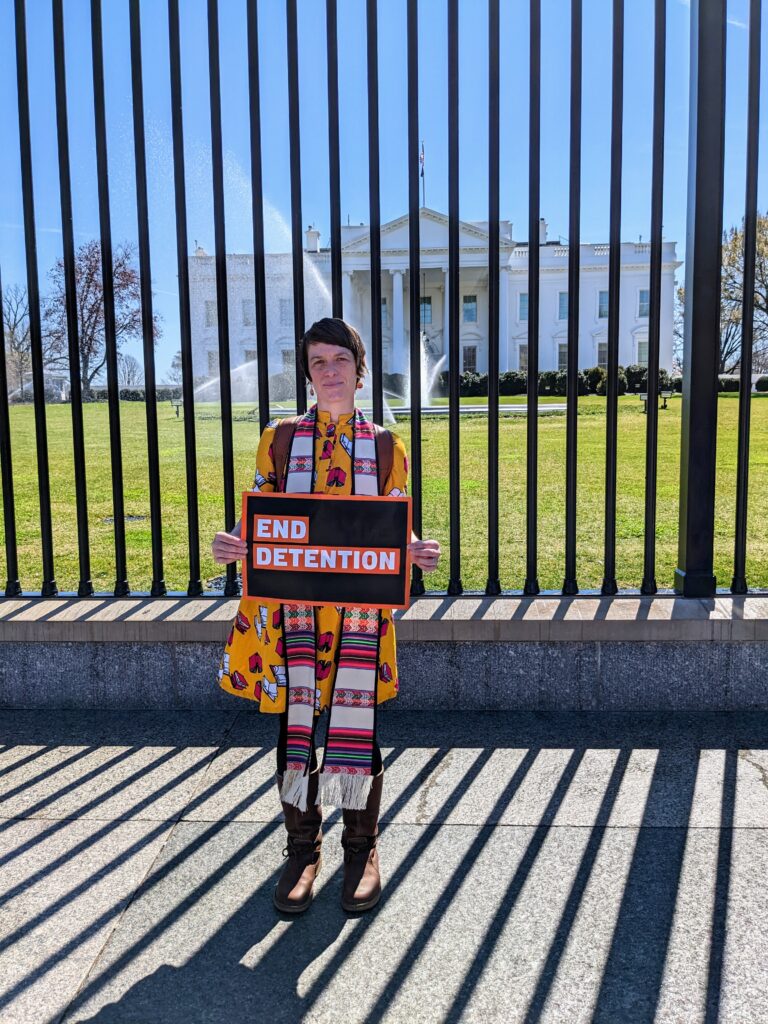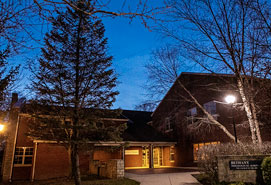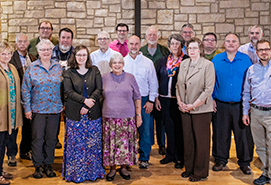Service Without Borders

When Jenn Hosler was 16 years old, she felt called to ministry and drawn to cultures different from her own. She participated in a youth work camp in the Rift Valley of Kenya, and witnessed the struggles that some people endure in order to access the bare essentials like food, water, and housing.
“I felt Jesus calling me to ministry, and I knew I was interested in other countries and cultures, but I wasn’t sure at first how all that would fit together,” she recalls.
It wasn’t until many years later that she was able to piece together her many gifts and interests and head down a clear path of ministry and service.
When she first encountered the Church of the Brethren through her now husband, Nathan Hosler, she immediately connected with the CoB’s commitments to simple living, social justice, and service. As a graduate of Moody Bible Institute in Chicago, where she studied Hebrew scriptures, particularly the prophets, Hosler was also captivated by the call to seek justice she found in scripture. A member of a Navy and Air Force family in Canada, Hosler had never encountered a Christian peace witness prior to the COB and eventually became deeply committed to Jesus’ call to peacemaking and loving enemies.
The Hoslers worked as Peace and Reconciliation Teachers and Workers in northern Nigeria from September 2009 to December 2011, teaching and providing administrative and technical support to various peacemaking activities of Ekklesiya Yan’uwa a Nigeria (EYN, the Church of the Brethren in Nigeria). It was a challenging time and place to seek peace. During their time in Nigeria, Boko Haram (a militant Islamic group that was responsible for tens of thousands of deaths during the 2010s) staged its first attacks. Following a contested presidential election in 2011, there were riots and attacks in the region where the Hoslers were living.
The Hoslers were involved in the development of the EYN’s Christian and Muslim for Peace Initiatives (CAMPI), which sought to foster conflict resolution and dialogue between religious and civic society leaders. An initial Muslim imam and Christian pastor dialogue focused on building relationships and encouraging conversation and collaboration between Christians and Muslims on such topics as how to form effective business relationships. CAMPI continued to work for peace even after the height of the Boko Haram crisis.
“I am proud of the fact that we are able to be a part of CAMPI, and I am happy that has continued to do important work,” she says.
The experience of living and working in Nigeria shaped Hosler as Christian and as a leader. She found it deeply rewarding to experience church life in another culture. Enjoying worship music and participating in love feasts were among the highlights. She also appreciated the opportunity to ask questions, learn, and share her own experiences of cultural differences. She and her husband were pleased to be able to visit the homes and places of worship of Nigerian friends, in a culture where it is considered a great honor to provide hospitality to visitors.
Hosler’s interest in interfaith dialogue and collaboration connects with her academic background. She earned a master’s degree in community psychology and social change from Pennsylvania State University prior to her time in Nigeria (2009) and a PhD in community psychology from University of Maryland, Baltimore County. Her research explores the how and why people become involved in interfaith engagement.
Hosler is an ordained minister in the Church of the Brethren and she serves as a plural nonsalaried pastor at the Washington City (DC) congregation. She also is the Program and Organizational Development Lead for Washington City Church of the Brethren in Washington, DC. That church, located a couple of blocks from the U.S. Capitol Building, is part of the Migrant Solidarity Mutual Aid Network, which provides assistance to migrants who have been bussed to D.C. from Texas and Arizona. Washington City Church is one of several faith-based organizations which provide help to newly arrived migrants — from food, clothing, and housing to advocacy related to government policy. The church has been tending to the basic needs of 45-130 migrants each week, providing hot meals and clothing to newly arrived individuals and families. They are now assessing how best to provide long-term support to this population.
“We need to figure out how to best support the needs of our brothers and sisters in need,” says Hosler. “And at the same time, we are considering how this congregation can grow and renew.”








 Green Circle: Bethany invests in 100% renewable energy.
Green Circle: Bethany invests in 100% renewable energy.